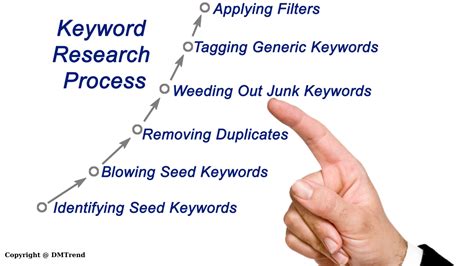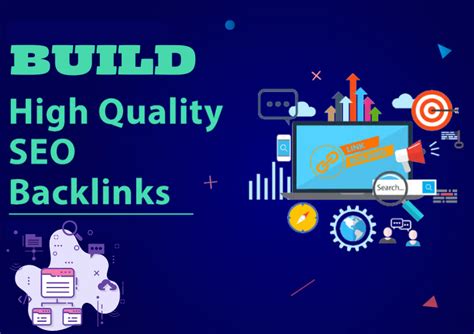In today's digital age, every website owner strives to attract more visitors and improve their online presence. While it may seem like a daunting task, there are various strategies you can implement to achieve these goals. By employing effective techniques and staying up-to-date with the ever-changing world of search engine algorithms, you can significantly boost your website's traffic and enhance its ranking on popular search engines.
Increase your online visibility
To stand out from the crowd, it is crucial to increase your online visibility. This means capturing the attention of search engine crawlers and ensuring that your website appears in relevant search results. One effective way to achieve this is through search engine optimization (SEO). By optimizing your website with relevant keywords, meta tags, and engaging content, you can improve its visibility and increase the chances of attracting organic traffic.
Optimize your content
When it comes to optimizing your website, quality content plays a vital role. High-quality, informative, and engaging content not only keeps your visitors on your site for longer durations but also improves your search engine ranking. Incorporate relevant keywords naturally throughout your content and make sure it flows smoothly for an optimal reading experience. Additionally, implementing a well-structured navigation menu and internal linking can enhance your website's user experience and make it easier for search engines to crawl and index your pages.
Understanding the Power of Relevant Keywords

In the realm of digital marketing, the strategic use of relevant keywords holds immense power. By understanding the importance of keywords and optimizing them effectively, you can enhance your website's visibility and attract more targeted organic traffic.
Keywords are the foundation of search engine optimization (SEO) and play a crucial role in determining the relevance and ranking of your website in search engine results pages (SERPs). When users enter specific search queries, search engines crawl through billions of webpages to identify the most relevant ones to display. By strategically incorporating keywords that align with users' search intent, you increase your chances of being found by your target audience.
Proper keyword research is the first step in understanding and optimizing keywords. Start by brainstorming words or phrases that are related to your business, products, or services. These can include broad terms as well as long-tail keywords, which are more specific and often have higher conversion rates. Utilize keyword research tools to identify popular search terms, analyze their search volume, and assess their competitiveness.
| Key Points | Details |
|---|---|
| Relevance | Choose keywords that accurately represent your website and its content. |
| Search Volume | Target keywords with a decent search volume to maximize potential traffic. |
| Competition | Balance between competitive and less competitive keywords for optimal visibility. |
| Long-Tail Keywords | Consider incorporating longer, more specific keywords for targeted traffic. |
| Keyword Placement | Strategically place keywords in your website's meta tags, headings, content, and URLs. |
| Monitor and Adjust | Regularly analyze your website's keyword performance and make adjustments as needed. |
Once you have identified the most relevant and effective keywords for your website, it's crucial to properly optimize them. Keyword optimization involves strategically placing keywords throughout your website's meta tags, headings, content, URLs, and alt text for images. However, it's important to avoid keyword stuffing, as search engines penalize websites that excessively use keywords.
By understanding the power of relevant keywords and implementing effective optimization strategies, you can significantly boost your website's visibility, increase organic traffic, and improve your search engine rankings. Stay updated with the latest keyword trends, monitor your website's performance, and consistently refine your keyword strategy to stay ahead in the competitive digital landscape.
Create Compelling and Captivating content
When it comes to enhancing the visibility and performance of your website, one crucial element that should never be overlooked is the creation of high-quality and engaging content. Great content not only attracts and retains the attention of your target audience but also improves your website's search engine ranking. In this section, we will explore effective strategies to create compelling content that resonates with your readers and drives organic traffic to your website.
- Identify your target audience: Before you start creating content, it's essential to understand your target audience. Determine their needs, preferences, and pain points. This knowledge will help you tailor your content to their interests and ensure it resonates with them.
- Research relevant topics: Conduct thorough research to identify topics that are both interesting to your audience and relevant to your industry. Look for trending keywords, frequently asked questions, or areas of interest that you can address in your content.
- Create valuable and informative content: When crafting your content, focus on providing value to your readers. Offer unique insights, practical tips, or expert advice that they can't find elsewhere. This will establish your credibility and position you as a thought leader in your field.
- Write for readability and engagement: Use clear and concise language that is easy to understand. Break up your content into digestible paragraphs, and utilize headings, subheadings, and bullet points to improve readability. Incorporate visuals, such as images or videos, to enhance engagement.
- Incorporate SEO best practices: While creating engaging content is crucial, it's also essential to optimize it for search engines. Include relevant keywords naturally throughout your content and optimize your meta tags, URLs, and headers. This will improve your chances of ranking higher in search engine results pages.
- Promote your content: Creating high-quality content is just the first step. You also need to promote it effectively. Share your content on social media platforms, engage with your audience, and collaborate with influencers or industry partners to expand your reach. Encourage others to share your content, and consider utilizing email marketing or guest blogging opportunities to drive traffic to your website.
By putting effort into creating high-quality and engaging content, you can significantly enhance your website's visibility, attract a larger audience, and improve your search engine ranking. Remember, the key is to understand your audience, provide valuable insights, optimize for search engines, and actively promote your content. Following these strategies will help you establish your website as a reliable source of information in your industry and drive organic traffic to your site.
Utilize Social Media Channels for Website Promotion

Social media has emerged as a powerful tool for promoting your website and increasing its visibility to a wide audience. By leveraging popular social media platforms, you can effectively drive traffic to your website and improve your online presence.
One of the key advantages of using social media to promote your website is its ability to reach a large and diverse user base. With millions of active users on platforms such as Facebook, Twitter, Instagram, and LinkedIn, you have the opportunity to connect with potential visitors, customers, and influencers from various backgrounds and interests.
Engaging with your audience on social media can also help you build brand awareness and credibility. By regularly sharing valuable content related to your website niche, you can establish yourself as an authority in the industry and gain the trust of your followers. This can lead to increased website visits and higher chances of converting visitors into loyal customers.
| Benefits of Social Media Promotion | Best Practices |
|---|---|
| 1. Increased website traffic | 1. Create compelling and shareable content |
| 2. Improved brand awareness | 2. Use relevant hashtags to reach a wider audience |
| 3. Enhanced customer engagement | 3. Interact with your followers by responding to comments and messages |
| 4. Higher conversion rates | 4. Encourage social sharing by adding social media buttons to your website |
In addition to sharing your own content, don't miss out on the opportunity to collaborate with influencers and relevant communities within your industry. Influencer partnerships and guest posting can further amplify your website's reach and attract a new audience segment.
Remember to track your social media efforts using analytics tools to gain insights into what works best for your website promotion strategy. Continuously refine your approach based on data-driven decisions to maximize the benefits of social media for boosting your website traffic and overall search engine ranking.
Improve Website Loading Speed
Enhancing the speed at which your website loads is crucial for optimizing user experience and gaining higher visibility in search engine results. In this section, we will explore effective techniques to boost the loading time of your website without compromising its functionality and design.
Optimize Image Sizes: One of the primary factors affecting website loading speed is the size of the images used. By optimizing image sizes through compression and resizing, you can significantly reduce the loading time of your web pages without sacrificing visual quality.
Minify HTML, CSS, and JavaScript: Minifying these elements involves removing unnecessary characters and formatting to reduce file sizes. This helps improve loading speed as the browser needs to process smaller files, resulting in quicker page loading times.
Enable Caching: Caching allows the browser to store certain elements of your website locally, reducing the need to retrieve them from the server each time a page is loaded. By leveraging browser caching, you can enhance performance and decrease load times for returning visitors.
Utilize Content Delivery Networks (CDNs): CDNs are networks of servers distributed across various locations globally. By utilizing a CDN, your website's static content, such as images, CSS, and JavaScript, can be served from the server closest to the user's location. This reduces latency and improves loading speed for visitors from different geographical regions.
Eliminate Unnecessary Plugins and Scripts: Review your website's plugins and scripts to identify any that are unnecessary or outdated. Removing unnecessary elements reduces the number of HTTP requests made when loading a page, resulting in faster loading times.
Reduce Redirects: Redirects add additional server requests and increase the loading time of your website. Minimize the use of redirects or consolidate them as much as possible to optimize loading speed and improve overall user experience.
Implement Lazy Loading: Lazy loading is a technique that defers the loading of certain elements, such as images or videos, until they are actually viewed by the user. By implementing lazy loading, you can decrease the initial loading time of your web pages while still providing access to all content as users scroll through your site.
Monitor and Optimize Server Performance: Regularly monitor your server's performance and ensure that it is capable of handling the expected traffic to your website. Optimize server settings and configurations to minimize response times and improve overall loading speed.
Consider AMP (Accelerated Mobile Pages): Implementing AMP, a framework developed by Google, can significantly improve loading speed for mobile users. AMP allows for the creation of lightweight, fast-loading versions of your web pages optimized for mobile devices.
By implementing these strategies, you can enhance your website's loading speed and provide a seamless user experience for your visitors, ultimately boosting your search engine rankings and attracting more organic traffic.
Obtain High-Quality Backlinks from Relevant and Reliable Websites

Increase the visibility and authority of your website by building strong backlinks from websites that are both relevant to your niche and trusted by search engines. Creating genuine connections with other reputable sites can significantly enhance your online presence and improve your website's ranking on search engines.
Seek Relevant Websites: Focus on establishing connections with websites that operate within the same field or industry as your website. By linking to relevant websites and receiving backlinks from them, you establish your website as a reliable and valuable resource within your niche.
Trustworthy Websites: When building backlinks, prioritize partnerships with websites that have established themselves as trustworthy sources of information. Search engines place a high value on backlinks from reputable sites, as they perceive these links as an endorsement of your website's credibility and authority.
Publish High-Quality Content: To attract backlinks from relevant and trustworthy websites, consistently produce and publish high-quality content. Informative articles, educational resources, and insightful analysis not only establish your website as a valuable resource but also make it more likely for other websites to link to and reference your content.
Guest Blogging: A strategic approach to building backlinks is guest blogging on authoritative sites within your industry. Writing guest posts allows you to showcase your expertise and gain exposure to a wider audience. It also enables you to include backlinks to your website in the author bio or within the content, showcasing your knowledge and driving traffic to your site.
Engage in Active Networking: Actively participate in industry-related forums, online communities, and social media platforms to connect with like-minded individuals and professionals. By engaging in discussions and sharing valuable insights, you can attract attention to your website and initiate opportunities for backlink collaborations.
Monitor and Disavow Low-Quality Backlinks: Regularly monitor your website's backlink profile to identify any low-quality or spammy links that may harm your ranking. Utilize tools to disavow these undesirable backlinks, signaling to search engines that you do not endorse or associate with such websites.
Continuous Effort: Building backlinks is an ongoing process that requires consistent effort and dedication. Continuously seek opportunities to acquire quality backlinks, nurture relationships with relevant websites, and stay up-to-date with changes in your industry to ensure your website continues to rank highly in search engine results.
Remember, obtaining backlinks from relevant and trustworthy websites is a fundamental strategy to boost your website's traffic and improve its ranking on search engines. Implement these techniques to enhance your online presence and establish your website as a valuable resource within your niche.
Enhance Your Website's Visibility with On-Page SEO Tactics
Discover powerful strategies to optimize your website's performance on search engine result pages using on-page SEO techniques. By focusing on enhancing various elements within your website, you can significantly improve its visibility and attract a larger audience.
1. Harness the Power of Keywords:
Identify relevant keywords and incorporate them strategically in your website's content, meta tags, headers, and URLs. By appropriately utilizing keywords, you can increase the chances of your website ranking higher in search engine results.
2. Craft Engaging and Unique Content:
Create high-quality, informative, and unique content that adds value to your audience. By offering valuable insights and addressing their needs, you can encourage visitors to spend more time on your website and increase the likelihood of them returning.
3. Optimize Your Website's Structure:
Ensure that your website has a clear and organized structure, making it easy for search engines to crawl and index your pages. Optimize your website's internal linking structure and create a user-friendly navigation menu to enhance the overall user experience.
4. Optimize Meta Tags:
Craft compelling meta tags, including meta titles and descriptions, that accurately describe the content of each page. These tags not only help search engines understand your website's content but also influence a user's decision to click on your website in search results.
5. Make Use of Header Tags:
Employ header tags (H1, H2, H3, etc.) to structure your content effectively and highlight important sections. This not only helps search engines understand the hierarchy of information on your page but also allows users to skim through your content more easily.
6. Optimize Images:
Add alt text to your images, providing detailed descriptions that include relevant keywords. This not only improves accessibility but also allows search engines to understand and index your images correctly.
7. Improve Website Loading Speed:
Ensure that your website loads quickly by optimizing images, compressing files, and utilizing caching techniques. Faster loading speeds not only enhance user experience but also impact your website's search engine rankings.
8. Enhance Mobile Responsiveness:
With more users accessing websites on mobile devices, it is crucial to optimize your website for mobile responsiveness. Ensure that your website is mobile-friendly, easy to navigate, and provides a seamless user experience across all devices.
By implementing these on-page SEO techniques, you can improve your website's visibility in search engine results, attract organic traffic, and ultimately boost your online presence.
Analyze and Track Your Website Performance

Understanding how your website is performing and where it stands in search engine rankings is crucial for any online business. By monitoring and analyzing your website traffic and rankings, you can gain valuable insights into the effectiveness of your online strategies and make informed decisions to improve your website's visibility and performance.
There are several tools and techniques available to help you analyze and track your website traffic and rankings. One effective method is to utilize web analytics platforms, such as Google Analytics, that provide comprehensive data on your website's visitors, their behavior, and the sources from which they are coming.
By regularly reviewing these analytics reports, you can identify patterns, trends, and areas for improvement. For example, you can assess the keywords that are driving traffic to your site and optimize your content accordingly to boost your search engine rankings.
Tracking your website rankings is equally important, as it allows you to monitor your visibility in search engine result pages (SERPs). Various keyword tracking tools can help you keep an eye on your website's ranking for specific keywords or phrases. This information can help you gauge the effectiveness of your SEO efforts and make necessary adjustments to improve your website's performance in search engine results.
Additionally, studying your competitors' performance can provide valuable insights and help you refine your own strategies. Competitor analysis tools can help you track their website traffic, analyze their keyword rankings, and identify opportunities to outperform them in search engine rankings.
In conclusion, analyzing and tracking your website traffic and rankings is crucial for optimizing your online presence. By utilizing web analytics tools, monitoring keyword rankings, and studying competitor performance, you can make data-driven decisions to improve your website's visibility and drive more targeted traffic to your site.
FAQ
How can I increase the traffic to my website?
There are several ways to boost website traffic. Firstly, you can optimize your website for search engines by using relevant keywords, creating high-quality content, and improving the website's loading speed. Additionally, you can promote your website through social media platforms, engage with your audience through email marketing, and collaborate with influencers or other websites in your industry.
Why is it important to improve the ranking of my website on search engines?
Improving your website's ranking on search engines is crucial because it helps increase visibility and attract more organic traffic. When your website appears on the first page of search engine results, it gains credibility and trust from users. Higher rankings also lead to increased brand visibility and awareness, ultimately resulting in more potential customers and higher conversion rates.
What role does high-quality content play in boosting website traffic?
High-quality content is vital for boosting website traffic as it provides value to your audience and builds trust with search engines. When you create informative and engaging content, visitors are more likely to spend time on your website, explore other pages, and share your content with others. This leads to increased website traffic, improved user experience, and higher search engine rankings.
How can social media help in driving more traffic to my website?
Social media platforms can significantly contribute to driving website traffic. By actively promoting your website and its content on social media, you can attract a larger audience and encourage them to visit your website. You can share blog posts, product updates, or special promotions on platforms like Facebook, Twitter, Instagram, and LinkedIn. Engaging with your followers, using relevant hashtags, and regularly posting content can help expand your reach and increase website traffic.
Is it beneficial to collaborate with influencers or other websites to boost website traffic?
Absolutely! Collaborating with influencers or other websites in your industry can be highly beneficial for boosting website traffic. Influencers have large followings and can help promote your website or products to their audience. By partnering with relevant websites, you can potentially gain backlinks, which improve your website's visibility and ranking on search engines. These collaborations expose your website to a wider audience, driving more traffic and potentially attracting new customers.
How can I increase the traffic to my website?
There are several strategies that can help you boost website traffic. One important step is to optimize your website for search engines by using relevant keywords and meta tags. Additionally, regularly producing high-quality content and promoting it through social media and email marketing can attract more visitors. Collaborating with influencers or industry experts can also help bring in new traffic. Lastly, ensuring your website is user-friendly and has a fast loading speed can enhance the user experience and drive more traffic.



